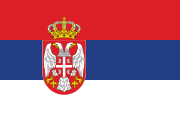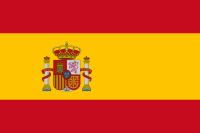Alemannia Aachen
| Full name | Aachener Turn- und Sportverein Alemannia 1900 e.V. |
||||||||||||||||||||||||||
|---|---|---|---|---|---|---|---|---|---|---|---|---|---|---|---|---|---|---|---|---|---|---|---|---|---|---|---|
| Nickname(s) | Kartoffelkäfer (potato beetles) | ||||||||||||||||||||||||||
| Founded | December 16 1900 | ||||||||||||||||||||||||||
| Ground | Tivoli (Capacity: 21,300) |
||||||||||||||||||||||||||
| Chairman | Prof. Horst Heinrichs | ||||||||||||||||||||||||||
| Manager | Jürgen Seeberger | ||||||||||||||||||||||||||
| League | 2nd Bundesliga | ||||||||||||||||||||||||||
| 2007-08 | 2nd Bundesliga, 7th | ||||||||||||||||||||||||||
|
|||||||||||||||||||||||||||
Alemannia Aachen is a German football club from the western city of Aachen, North Rhine-Westphalia. A long time fixture of the country's second division 2.Bundesliga, Alemannia enjoyed a three-year turn in the top-flight Bundesliga in the late 1960s and, after a successful 2005-06 campaign, returned to first division play for a single season in 2006-2007.
Contents |
History
Foundation to World War II
The club was founded on December 16, 1900 by a group of eighteen high school students. Knowing that another team had already taken the name 1. FC Aachen the new club was christened FC Alemannia using the old Latin name for Germany. World War I devastated the club: the pre-war membership of 200 was reduced to just 37 by the conflict. In early 1919 Alemannia merged with Aachener Turnverein 1847 to become TSV Alemannia Aachen 1900. Their new partner's interest was primarily in gymnastics and the union was short-lived, with the clubs splitting again in 1924.
The city of Aachen is near the Belgian and Dutch borders and as a result Alemannia has had frequent contact with clubs from those countries. Their first game was against the Belgian side R. Dolhain F.C., one of that country's earliest clubs. The team played in the Rhineland-Westphalia FA and won its first championship there in 1907, before joining the newly formed Westdeutsche Fussball Verband in 1909. The club grew steadily as interest in football increased. They qualified for the Rheingauliga in 1921, built their own stadium in 1928, and earned admittance to the Oberliga the following year.
The club enjoyed some success in the early 30s by advancing to the final four of the Westdeutsche championship playoffs. In 1933, German football was re-organized under the Third Reich into sixteen top-flight Gauligen. Alemannia played several seasons in the Gauliga Mittelrhein in the late 30s and early 40s. They finished atop their division in 1938 and advanced to the national final rounds. This was in spite of a protest by SV Beuel 06 which ultimately saw that club awarded the division championship, but too late to allow Beuel to play in the national playoff in Aachen's stead.
Alemannia is known as one of the few of this dark era to offer any challenge to the Nazi regime's purge of Jews from the country's sports organizations by demanding the release of a jailed Jewish member.
Postwar and entry to the Bundesliga
In 1946, after World War II and the lifting of the ban placed by Allied occupation authorities on most types of organizations in Germany, Alemannia re-constituted itself and began play in second tier Rheinbezirk. They returned to first division play in the Oberliga West the next year, but ran into financial difficulty. They remained a steady, but unspectacular second division side, generally finishing mid-table.
Aachen's first measure of success came with an advance to the German Cup final in 1953 where they lost a 1:2 decision to Rot-Weiss Essen.
After the formation of the Bundesliga, Germany's new professional football league, in 1963, Alemannia found themselves in Regionalliga West (II). In 1965, they had another good run in German Cup competition, earning another final appearance – but were once again unsuccessful – this time losing 0:2 to Borussia Dortmund.
The club captured their division in 1967 and were promoted to the Bundesliga (I) for the 1967-68 season. They enjoyed their best ever result the next year with a second place finish behind champion Bayern Munich. However, the following season was a disaster: the team earned only one point in play away from home and toppled to an 18th place finish. They returned to play in the Regionalliga West (II), and in 1990 fell still further to the third division.
Road to recovery
After several mediocre seasons in the second half of the 1990s, trainer Werner Fuchs rejuvenated the Alemannia squad by playing 4-4-2 without a libero (sweeper), creating a side that played an attractive, fluid offense. In 1999, the team played well and delivered an especially strong second half. They were atop the table, just weeks away from the end of the season, when tragedy struck with the unexpected death of Fuchs. The whole city was in shock, but the club managed to pull through, dedicating their promotion to their late trainer and winning the Regionalliga West/Südwest (III)[1].
The first years in the 2.Bundesliga were tough for Aachen, both on the field and financially. The club struggled for several seasons and the situation was worsened when financial irregularities were uncovered showing the club was near bankruptcy.
The turnaround came with a new executive board under president Horst Heinrichs, trainer Dieter Hecking and manager Jörg Schmadtke. Through improved financial management, shrewd player signings, and clever game tactics, Aachen became a power once again in the 2003-04 season. They played their way to their third German Cup final appearance, knocking off 1860 München, Bayern Munich, and Borussia Mönchengladbach, before losing 2:3 to Bundesliga champions Werder Bremen. As league champions Bremen already held a place in the UEFA Champions League, thereby making room for Aachen to take part in the UEFA Cup competition. They delivered a decent performance, advancing to the Round of 16 before going out to eventual semi-finalists AZ Alkmaar. The club's participation in the German Cup and UEFA Cup play helped to significantly improve their financial situation.
Current
On April 16th, 2006 Alemannia became the first team to earn promotion to the Bundesliga in 2005-06, ending Aachen's 36-year absence from top-flight football. However, they stayed up only a single season as they took only one point from their last eight matches of the campaign. In summer 2007, the club appointed former German international defender and 1990 FIFA-World-Champion Guido Buchwald as manager trainer, who was curiously fired after only 14 matches. After a short interim with Alemannias Sportsmanger Jörg Schmadtke as headcoach, he was then replaced by Jürgen Seeberger, hardly known in Germany, in the winter break of the season.
Recent seasons
| Year | Division | Position |
| 1999-2000 | 2. Bundesliga (II) | 8th |
| 2000-01 | 2. Bundesliga | 10th |
| 2001-02 | 2. Bundesliga | 14th |
| 2002-03 | 2. Bundesliga | 6th |
| 2003-04 | 2. Bundesliga | 6th |
| 2004-05 | 2. Bundesliga | 6th |
| 2005-06 | 2. Bundesliga | 2nd (promoted) |
| 2006-07 | Bundesliga (I) | 17th (relegated) |
| 2007-08 | 2. Bundesliga (II) | 7th |
| 2008-09 | 2. Bundesliga |
Current squad 2008-2009
|
|
For recent transfers, see List of German football transfers summer 2008.
Former Players
 Ivan Petrović
Ivan Petrović Willi Landgraf
Willi Landgraf Erik Meijer
Erik Meijer Jo Montanes
Jo Montanes Horacio Troche
Horacio Troche
Honours
- German vice-champions: 1969
- German Cup finalist: 1953, 1965, 2004
Managers
 Diethelm Ferner - 1987-1987
Diethelm Ferner - 1987-1987 Peter Neururer - 1987-1989
Peter Neururer - 1987-1989 Rolf Grünther - 1989-1989
Rolf Grünther - 1989-1989 Mustafa Denizli - 1989-1990
Mustafa Denizli - 1989-1990 Eckhard Krautzun - 1990-1990
Eckhard Krautzun - 1990-1990 Norbert Wagner - 1990-1991
Norbert Wagner - 1990-1991 Michael Schleiden - 1991
Michael Schleiden - 1991 Wilfried Hannes - 1991-1994
Wilfried Hannes - 1991-1994 Helmut Graf - 1994-1994
Helmut Graf - 1994-1994 Gerd vom Bruch - 1994-1996
Gerd vom Bruch - 1994-1996 Werner Fuchs - 1996-1999
Werner Fuchs - 1996-1999 André Winkhold - 1999-1999
André Winkhold - 1999-1999 Eugen Hach - 1999-2001
Eugen Hach - 1999-2001 Jörg Berger - 2001-2004
Jörg Berger - 2001-2004 Dieter Hecking - 2004-2006
Dieter Hecking - 2004-2006 Michael Frontzeck - 2006-2007
Michael Frontzeck - 2006-2007 Guido Buchwald - 2007
Guido Buchwald - 2007 Jörg Schmadtke - 2007
Jörg Schmadtke - 2007 Jürgen Seeberger - 2008-
Jürgen Seeberger - 2008-
Stadium
Alemannia Aachen plays in the Stadion Tivoli which has a capacity of 21,632 spectators (3,632 seats). One of Germany's better known stadiums, it was built in 1908 and has been renovated several times. The club played its 2004 UEFA Cup matches in Cologne's Rhein Energie Stadion in order to meet the stadium capacity requirements in place for the competition. Aachen is hoping to build a new stadium in the near future.
Famous players
- Ivan Petrović
- Jupp Derwall, onetime coach of the West German national team
- Torsten Frings
- Willi Landgraf, holds the record for playing more Second Bundesliga games than any other player
- Erik Meijer
- Karlheinz Pflipsen
- Erik van der Luer
- Horacio Troche
- Jo Montanes
- Mark Rudan
- "Iron Reinhold" Muenzenberg, the club's first national team representative
Team trivia
- Alemannia carries the strange nickname "the Potato Beetles" (Kartoffelkäfer) because of their striped yellow-black jerseys, which make them look like the particular insects.
- Both Aachen and SV Beuel 06 lay claim to the 1938 Gauliga Mittelrhein championship. A late decision by the DFB (Deutsche Fussball Bund) awarded Beuel points that would have given them the title, but by that time Aachen had already moved on to compete in the national final rounds.
External links
- Official team website
- Abseits Guide to German Soccer
- Das deutsche Fußball-Archiv historical German football league tables (in German)
|
German 2. Bundesliga (II) Football Clubs (2008-09)
|
|||||||||||||
|---|---|---|---|---|---|---|---|---|---|---|---|---|---|
| Alemannia Aachen | Rot Weiss Ahlen | FC Augsburg | MSV Duisburg | FSV Frankfurt | SC Freiburg | SpVgg Greuther Fürth | FC Hansa Rostock | FC Ingolstadt 04 | 1. FC Kaiserslautern | TuS Koblenz | 1. FSV Mainz 05 | 1860 München | 1. FC Nuremberg | Rot-Weiß Oberhausen | VfL Osnabrück | FC St. Pauli | SV Wehen Wiesbaden
|
|||||||||||||
|
German Oberliga Nordrhein-Westfalen (V) Football Clubs (2008-09)
|
|||||||||||||
|
|||||||||||||
|
German Under 19 Bundesliga West football clubs (2008-09)
|
|||||||||||||
|
|||||||||||||
|
German Under 17 Bundesliga West football clubs (2008-09)
|
|||||||||||||
|
|||||||||||||